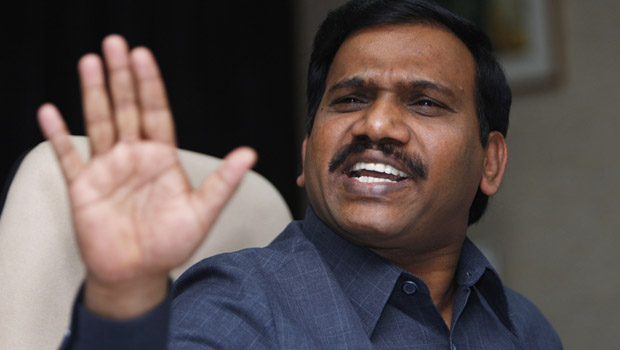The 2G spectrum scam mainly centers on the country’s former Telecom Minister Andimuthu Raja, who is accused of selling mobile phone licenses at “unbelievably low prices” in 2008.
“There should be no doubt in anyone’s mind that if any wrong thing has been done by anybody, he or she will be brought to book,” said Singh on the sidelines of an event held in New Delhi.
Separately, the Indian government on Saturday filed an affidavit in the Supreme Court on behalf of the prime minister, rejecting the charge of inaction on the part of his office in dealing with the request of sanction for prosecution of Raja in the 2G spectrum issue.
The 10-page affidavit, filed by the office of Attorney General of India G.E. Vahanvati, stated that there was no inaction on part of the prime minister’s office (PMO) on a complaint filed by Janata Party leader and former Law Minister Subramanian Swamy seeking permission to initiate proceedings against Raja over improper allocation of 2G frequencies.
The affidavit, which lists how Swamy’s letters to the premier were adequately dealt with, also said the PMO had sought the views of the Law Ministry on Swamy’s plea, which could not be granted as the Central Bureau of Investigation was investigating the case.
The Telecom Regulatory Authority of India (TRAI) recently advised the country’s Department of Telecommunications to scrap 69 of the 130 licenses given for 2G phone services since December 2006.
Apart from suggesting cancelation of licenses of new operators, TRAI also recommended censure for nearly 40 licenses owned by seven companies, including Tata Teleservices and Vodafone.
In Etisalat DB’s case, the TRAI suggested that the Indian government should impose liquidated damages in 13 circles for delays in meeting rollout targets and cancelation of licenses in all 15 circles.
“Even among those reported to have complied with the obligation, it is seen that in several cases the licensees have either not started the service or the number of base station/subscriber is negligible. The very purpose of mandating the rollout obligation is to ensure that the license and the spectrum given is effectively utilized to provide services to the public,” the TRAI said in its report to the DoT.
In the case of Tata Teleservices, TRAI has suggested the company missed its rollout obligation in Assam, Jammu & Kashmir and the northeastern states by two weeks to 14 weeks and, therefore, the DoT should impose a penalty. Vodafone has also missed rollout targets in Bihar, Jammu & Kashmir and the northeastern states.
The license conditions stipulate liquidated charges at the rate of 500,000 to 70 million rupees based on the length of delays.










